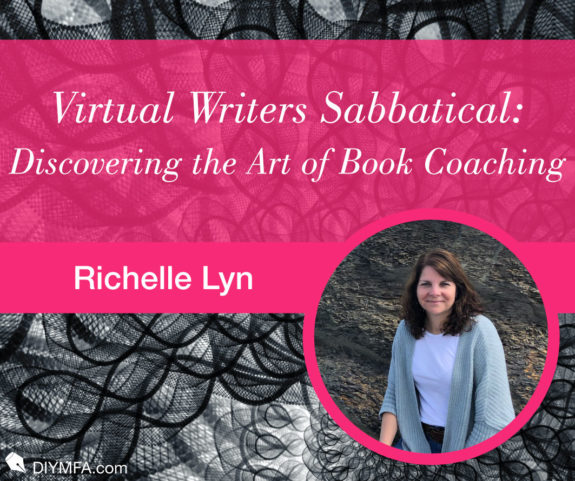This is the final installment of my 2021 Virtual Writers Sabbatical (“VWS”) series and today we are focusing on book coaching. If you are new to the VWS, it’s a build your own virtual writing craft adventure where you focus on you and your writing craft and identify specific writing goals that you will chip away at in small chunks over a period of time.
Checking the Itinerary
I selected five destinations for my own virtual trip at the beginning of 2021 and have shared my experiences on three of them in earlier installments: Create Your Own Virtual Writers Sabbatical describes how to kick-off your VWS, How Creativity, Inc. Inspired Me shares the importance of support from others in your writing successes and Challenging a Genre Identity Crisis focuses on how our reading and writing tastes can evolve when we least expect it. My final 2021 destination is to complete a book coaching class.
What is a Book Coach?
A book coach is an editor, mentor, and cheerleader all rolled into one. Book coaches can work with writers at any stage in their writing process. Whether you’re starting a new project, stuck in the middle of one, or getting ready to pitch or publish, a book coach will meet you where you are in your writing project and provide you support with writing craft, accountability, and emotional support.
Imagine having your own interactive beta reader who can: tell you what they see happening on the page (as compared to what you think is happening), help you brainstorm through your roadblocks, provide recommendations on ways to improve your writing or new things to try, and be honest with you on what they think is holding your story back from its full potential. That’s a book coach.
Is Book Coaching for Me?
I discovered last year while participating in DIY MFA’s small group coaching program and then an off-shoot critique group from there that I enjoyed reading other writers’ developing stories and the creative brainstorming and collaboration that was part of the process almost as much as I enjoyed writing my own story. I wrote about this in How Creativity, Inc. Inspired Me.
I then revisited DIY MFA Radio’s Episode 221 in which Jennie Nash, founder of Author Accelerator, talked about training book coaches to support writers and I did some follow-up research.
I ultimately decided book coaching would be a great way for me to meld: my love of books, my affinity for the storytellers who follow the little—and at times, very big—voice in their head telling them they must write, and my pre-writing-life skills and strengths that align well with book coaching.
I signed up for the Author Accelerator Book Coach Certification program in fiction, so I could learn the additional skills I needed to effectively guide, collaborate with, and support other writers as a book coach while at the same time also enhancing my writing craft knowledge to apply to my own WIP.
Book Coaching Is Its Own Virtual Writers Sabbatical
It’s now mid-November, and I’ve been working my way through the fiction program since spring and loving every minute of it, especially working on the first two practicums which gave me a front-row seat with two wonderful writers who trusted me enough to share their amazing stories and characters with me during the creative process. The adrenaline rush I felt working with them on their WIPs and my excitement for what’s ahead for them confirmed book coaching was for me.
Experiencing first-hand the positive impact book coaching can have on a WIP made me want to experience it for myself. Plus, I figured if I’m going to talk the talk, I should walk the walk. I recently hired my own Author Accelerator certified book coach to help me with my WIP, so I could see what it’s like to be on the other end of the book coaching relationship. This is what I’ve learned so far:
Book coaching is an opportunity to shine a light on your own creation without having to share the spotlight with others.
Writing can be isolating which is why many of us participate in classes, Facebook groups, social media, and other community and critique groups for camaraderie, emotional support, craft expansion/enlightenment, and writing feedback. And the dose of dopamine we receive from the human contact aspects of these activities can make them worthwhile in and of themselves. I heart my critique group (see my ode to them in How Creativity, Inc. Inspired Me).
But the costs of time and energy spent on group activities can often outweigh the benefits measured by the forward progress you make on your WIP. Many of these activities lack productive structures to start with, and then they parse out the allotted time (i.e., more projects receive surface-level attention instead of deep dives for one or two).
Sometimes it’s nice to just do You. Working with a book coach focused on just your project is a luxury (although it really shouldn’t be) that not enough writers experience.
Finding the right book coach is like finding a soulmate.
Your book coach should be your trusted advisor who provides you with a safe space to create, and you in return can be honest with them as you work through the excavating process that inevitably happens while writing a book.
Whether intentional or unintentional, sometimes free writing help from your community can come with its own hidden costs if you’re not paying attention. Your book coach should commit to supporting you as you grow and reach for your goals and dreams instead of throwing competing agendas in your path. And when you’re ready to proclaim in the words of Cristina Yang, “…you’re my person…,” then you know you’ve found the right book coach.
You likely won’t know if you’re truly ready for coaching until you’re smack dab in the middle of it.
Craving that fresh perspective—and processing it when you’re the one in the hot seat—can seem like two completely different experiences. It can be scary at first. My ears started ringing and my mind went blank at first—just like the first time I was called on to answer a line of Socratic questioning in Contracts Law. But you get through it, and it gets easier the more you do it.
Your ability to receive, make sense of, and utilize constructive feedback, no matter how well it’s communicated to you, takes time to develop, similar to building a muscle. But like many things in life, you must be in it to win it. A coaching relationship can’t thrive if you’re half in and half out; being vulnerable is required, just like it’s a prerequisite to writing for others. But your results will be amplified by your own commitment to the coaching process.
Book coaches can benefit from having their own book coach, too.
You’ve probably figured out by now that I’m one of those growth-mindset people. I know there’s a lifetime of learning ahead of me, and I geek out from the learning process itself. Even though I’m on my own path to becoming a certified book coach, I know there are still many things for me to learn about writing and book coaching. Having a fresh set of eyes to provide another perspective is always a plus, but it’s even more powerful when the person is also an expert in the area and can pick up on things that you’re too close to see, may take for granted, or just haven’t learned yet.
My coach’s feedback was a game-changer for me within the first couple of sessions. Her feedback is always thoughtful, insightful, and evidence-based. She’s highlighted my weakest links and the story angles I was neglecting that needed extra attention. She’s introduced me to new ideas around story itself and helped me reframe some ideas I was already familiar with. She’s helped me figure out where to focus my story prep time to maximize my output.
And, most importantly, she’s provided me with an independent view that I will never be able to provide for myself, while it’s still early enough in the writing process to make changes that will positively impact my story’s long-term trajectory.
Heading Into the Final Stretch of 2021
The last legs of my book coaching class experience include: completing the final prong of course materials, working through my last practicum, and applying to Author Accelerator to become a certified fiction book coach.
Where To Next?
My 2022 VWS destinations will include completing Author Accelerator’s companion non-fiction program next and designing, building, and launching my own book coaching business. I’ve never built a side hustle before, but I’m looking forward to rolling up my sleeves and getting into the details of all things solopreneur.
I hope you’ll join me again on next year’s journey. But for now, as we get ready to turn the page to 2022, I hope you will carve out some time during the craziness of the holiday season to focus on you, your dreams, and your vision of what you’d like to accomplish with your own writing craft and goals by this time next year.
Don’t forget to check out the roadmap at Create Your Own Virtual Writers Sabbatical to update your current itinerary for next year’s trip—or to set up your new VWS if you’re just getting started. I will keep an eye out for you on the virtual road!

Richelle Lyn is a compensation & benefits attorney and HR executive, who is now chasing a career as a writer. Her favorite reads are suspense, mystery, and contemporary women’s fiction. She is writing her first YA suspense novel. She loves her tea hot and her coffee iced. She calls South Florida home, but her favorite place to be is on a trip. You can check her out on Twitter and Instagram.







